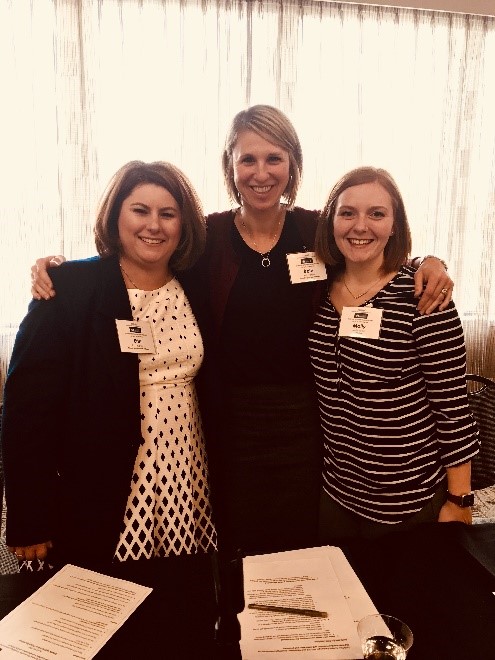Reflections from a Parent- and Self-Advocate
Anna Corona
Program Analyst, Child and Adolescent Health
AMCHP
Sara Miller
Program Analyst, Health Systems Transformation
AMCHP
Those who provide services to children and youth with autism spectrum disorders and other developmental disabilities (ASD/DD) know that one of the best ways to improve those services is to hear first-hand from the people who use them. That’s just one reason that a recent gathering of Title V staff from around the country was so valuable.
About 15 Title V professionals and their partners came to Spokane, Wash., for the annual Peer-to-Peer Exchange of the State Public Health Autism Resource Center (SPHARC), which offers technical assistance and resource development to enable cross-state learning and capacity building for Title V programs in developing and applying systems of care for children and youth with (ASD/DD). Hosted by the Washington State Department of Health grantee team, the meeting was designed to connect state leaders and build knowledge and resources about telehealth through peer-learning activities and structured discussion.
Why focus on telehealth? Because there aren’t enough behavioral service providers in the U.S. for the approximately one in 59 children diagnosed with ASD.1 Telehealth can fulfill the need for services and supports for children and their families, self-advocates, and providers.
Attendees had the pleasure of hearing from several family representatives during a parent advocate panel, and from self advocates with the Washington Square Pegs group (a social meet up group for Autistic adults) to take a deeper dive into personal experience and informed action when it comes to advocating for individuals with ASD/DD.
AMCHP later reached out to these representatives to learn more about their lived experiences and how they felt these experiences related to the issue of health equity for individuals with developmental disabilities. Read on to learn what Zack Siddeek, an autistic adult and self-advocate, and Beth Florea, a parent advocate of a seven-year-old son living with ASD, have to say.

Zack Siddeek (far left), representing the Square Pegs group, preparing to present during the 2018 SPAHRC Peer-to-Peer Exchange.
Reflections from Zack Sideek, Self-Advocate (Seattle, Washington):
When seeking mental health support services, he found himself spending more time educating his therapist on what it is like to live with autism than he did receiving therapy. Zack suggests that the issue lies in the silos between the mental health and the developmental disability systems, as well as the assumption that autistics receive all the services they need from the latter. In reality, only 20 percent of autistics within Zack’s home state of Washington are eligible for developmental disability services.
In addition, Zack highlighted that the national suicide rate of individuals on the spectrum is nine times greater than that of the general population, meaning approximately 11 percent of autistics will die from suicide.
Zack suggested two strategies for improving equitable access to care for autistic individuals:
- Research should be conducted and translated among providers regarding the unique ways that autistics respond to trauma, and
- Autistics must be involved in the service delivery setting not just as recipients of care, but also as employees and managers.

Beth Florea (center) with a fellow parent advocate and a service provider during an interactive panel that took place during the 2018 SPHARC Peer-to-Peer Exchange
Reflections from Beth Florea, Parent Advocate, (Wenatchee, Washington):
Reflecting on the challenges in trying to receive equitable supports and services for her son, Beth stressed the difficulty of living in a rural versus an urban setting. The challenges associated with living in a rural area are not limited just to the unavailability of specialized providers, Beth said; she discussed how long travel times to see a qualified provider can also mean missed work and lost wages. In addition, Beth brought light to the fact that in rural areas, many providers of specialty care (such as physical therapy) do not have the necessary training to work with children with behavioral challenges.
Beth highlighted the need for:
- More robust training for all health care professionals to better interact and provide appropriate care for individuals on the spectrum, and
- Pro-active accommodations from society, as individuals on the spectrum often have challenges navigating social structures and complex systems like health care.
For those of us working as MCH leaders and providers, it is imperative that we recognize these barriers and critically think about how we can incorporate strategies for improving access to care for individuals with ASD/DD into our action plans and day-to-day processes. For more information and resources on improving care coordination and the lived experiences of autistic adults, check out AMCHP’s SPHARC resources page.
1 https://www.cdc.gov/mmwr/volumes/67/ss/ss6706a1.htm?s_cid=ss6706a1_w
